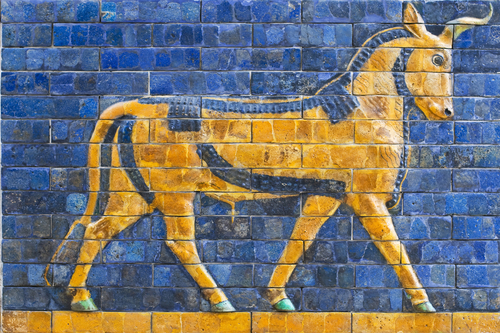
Golden Calf – Golden Opportunity
One of the great mystery’s of Jewish history is the sin of the Golden Calf. How is it possible for a People who just experienced the greatest Divine revelation of all time were able to deny the existence of the very G-d who revealed Himself to them by creating and worshiping another G-d?
This question has been discussed by the commentators who explain the events from a different perspective and we have addressed in this column in the past.
I’d like to focus on a different question that presupposes a belief in Hashgacha Protis – Divine Providence; that G-d is actually involved in the day to day happenings of each individual and surely of an entire People. Accordingly, how did G-d allow for such an offense to happen? Surely, there is a lesson for all of us for all time.
How many of us have made mistakes in our lives? Said something that really hurt someone. Done something that we feel has caused such damage to a relationship that we can never repair it. Perhaps we’ve done something that no one else knows about but it leaves us wondering whether our character is so rotten that we ought to throw in the towel and just not try anymore.
This is where the lesson of the Golden Calf comes to play in the most powerful fashion.
Imagine a couple of who have dated for a long time – 400 years to be exact. Finally, they are ready to get married. The moment arrives and the most intimate of experiences take place. A mere 40 days later the spouse behaves in an egregious fashion that seems to deny the very relationship. Is there hope? The relationship is doomed.
The intimacy of our story is what happened with the Jewish People and G-d at Sinai. The sin of the Golden Calf is the violation of the relationship.
In this story G-d is telling us that no shortcoming is a fait accomplice. No shortcoming perpetrated means that there is no hope. On the contrary, if G-d allowed the Jewish People to do Teshuva and repent, surely there is hope for us and our occasional shortcomings and sins.
(Please note: when marriage vows are violated there are other things to take into consideration beyond regret and repentance and require guidance to repair if that is even desired.)
Another lesson from this story that we can all relate to, is the state of Human Beings. We are all finite and will surely make mistakes. We shouldn’t define our shortcomings as a sign that we are beyond repair. On the contrary, the fact that we fall short means that we are Human. The lesson to be learned is that we need to pick ourselves up and keep trying. Keep striving for excellence. Perfection belongs only to G-d.
Have a good Shabbos!
